How to Calculate the Power Requirements for Your RV’s 30 Amp Solar Generator
Power up your RV on-the-go with the top-selling solar generator for 30 amp systems!
The Importance of Regular Exercise
Regular exercise is crucial for maintaining good health and overall well-being. It not only helps to keep our bodies fit and strong but also has numerous benefits for our mental and emotional health. In this blog section, we will explore the importance of regular exercise and highlight some concrete examples of how exercise can positively impact our lives.
Physical Benefits of Exercise
Exercise offers a wide range of physical benefits that contribute to our overall health. Here are some key points to consider:
- Improved cardiovascular health: Regular exercise, such as jogging or cycling, helps to strengthen the heart and improve blood circulation, reducing the risk of heart disease.
- Weight management: Engaging in physical activities like swimming or dancing helps to burn calories, maintain a healthy weight, and reduce the risk of obesity.
- Increased muscle strength and flexibility: Resistance training, like weightlifting or yoga, helps to build and tone muscles, improving overall strength and flexibility.
- Enhanced bone density: Weight-bearing exercises, such as walking or hiking, promote the development of strong bones and reduce the risk of osteoporosis.
- Boosted immune system: Regular exercise has been shown to strengthen the immune system, reducing the likelihood of getting sick.
Mental and Emotional Benefits of Exercise
Exercise not only benefits our physical health but also plays a vital role in our mental and emotional well-being. Consider the following examples:
- Reduced stress and anxiety: Engaging in activities like swimming or practicing mindfulness through yoga can help reduce stress and anxiety levels, promoting a sense of calm and relaxation.
- Improved mood and happiness: Exercise stimulates the production of endorphins, often referred to as “feel-good” hormones, which can enhance mood and overall happiness.
- Enhanced cognitive function: Regular physical activity has been linked to improved memory, focus, and overall cognitive function, benefiting both young and older individuals alike.
- Better sleep quality: Engaging in regular exercise has been shown to promote better sleep, helping individuals fall asleep faster and enjoy a more restful night’s rest.
Concrete Examples of Exercise Benefits
To further illustrate the benefits of regular exercise, let’s explore some real-life examples:
- Sarah, a dedicated runner, has experienced significant improvements in her cardiovascular health, reducing her risk of heart disease and increasing her overall stamina.
- John, a weightlifter, has seen tremendous gains in muscle strength and flexibility, helping him perform everyday tasks with ease and reducing the risk of injury.
- Emily, an avid swimmer, has found that regular swimming sessions have greatly reduced her stress levels and improved her mental well-being, allowing her to better manage her daily challenges.
Comparison Table: Different Types of Exercise
To help you understand the different types of exercise and their specific benefits, here is a comparison table:
| Exercise Type | Physical Benefits | Mental and Emotional Benefits |
|---|---|---|
| Jogging | Improved cardiovascular health, weight management | Reduced stress, enhanced mood |
| Weightlifting | Increased muscle strength and flexibility | Improved cognitive function, better sleep quality |
| Yoga | Enhanced flexibility, improved balance | Reduced anxiety, improved mood |
| Swimming | Cardiovascular fitness, improved lung capacity | Reduced stress, better mental well-being |
The Importance of Exercise for Mental Health
Exercise is often seen as a way to improve physical health and maintain a healthy weight. However, its benefits extend far beyond just the physical realm. Engaging in regular exercise has been proven to have a positive impact on mental health as well. In this blog section, we will explore the various ways exercise can benefit mental well-being, backed by real-life examples and concrete evidence.
Reduced Stress and Anxiety
Exercise is a natural stress reliever and can significantly reduce anxiety levels. When we engage in physical activity, our brain releases endorphins, also known as the “feel-good” hormones. These endorphins help alleviate stress and promote a sense of calm and relaxation. For instance, many individuals find that going for a brisk walk or a run after a long day at work helps them unwind and clear their minds.
Improved Mood and Emotional Well-being
Regular exercise has been shown to boost mood and enhance emotional well-being. Physical activity increases the production of serotonin, a neurotransmitter responsible for regulating mood. By increasing serotonin levels, exercise can alleviate symptoms of depression and enhance overall happiness. For example, studies have found that individuals who participate in group exercise classes, such as Zumba or yoga, experience improved mood and a greater sense of community.
Enhanced Cognitive Function
Exercise not only benefits our emotional well-being but also has a positive impact on cognitive function. Physical activity increases blood flow to the brain, promoting the growth of new brain cells and enhancing cognitive abilities. Additionally, exercise has been linked to improved memory and increased focus and concentration. For instance, research has shown that children who engage in regular physical activity perform better academically and have improved problem-solving skills.
Boosted Self-Esteem and Body Image
Engaging in physical activity can positively influence self-esteem and body image. Regular exercise helps individuals feel more confident and boosts their perception of their own physical abilities. This is particularly true when individuals set and achieve fitness goals, such as completing a marathon or mastering a challenging yoga pose. Real-life examples include individuals who have transformed their bodies through strength training, leading to increased self-esteem and a positive body image.
Improved Sleep Quality
Exercise can also have a significant impact on sleep quality. Physical activity helps regulate the body’s internal clock, promoting better sleep patterns and overall sleep quality. For instance, research has shown that individuals who engage in moderate-intensity exercise on a regular basis experience fewer sleep disturbances and enjoy deeper, more restful sleep.
Conclusion
In conclusion, exercise goes beyond its physical benefits and plays a crucial role in promoting mental well-being. Whether it’s reducing stress and anxiety, improving mood and emotional well-being, enhancing cognitive function, boosting self-esteem and body image, or improving sleep quality, regular physical activity has a multitude of positive effects on mental health. So, lace up your running shoes, grab your yoga mat, or hit the gym – your body and mind will thank you!
Sources:
- Harvard Health Publishing: “Exercise is an all-natural treatment to fight depression”
- Mayo Clinic: “Depression and anxiety: Exercise eases symptoms”
- American Psychological Association: “The exercise effect”
- National Sleep Foundation: “Exercise and sleep”
- Healthline: “10 Benefits of Exercise on the Brain and Body”
Blog Section: Choosing the Perfect Coffee Maker
Introduction
Are you tired of spending money on expensive cups of coffee at your local café? It’s time to take matters into your own hands and invest in a high-quality coffee maker for your home. In this blog section, we will guide you through the process of choosing the perfect coffee maker that suits your needs and preferences. Say goodbye to bland, mediocre coffee and say hello to the aromatic delight of a freshly brewed cup in the comfort of your own home.
- Understanding Your Brewing Preferences
Before diving into the world of coffee makers, it’s crucial to understand your brewing preferences. Do you enjoy a rich, bold espresso or a smooth, mellow cup of drip coffee? Knowing your preferred brewing method will help you narrow down your options and find the perfect coffee maker for you.
- Exploring Different Coffee Maker Types
a. Drip Coffee Makers
Drip coffee makers are the most popular choice for home brewing. They offer convenience and versatility, allowing you to brew a large pot of coffee and keep it warm for hours. Brands like Breville and Cuisinart offer a wide range of drip coffee makers, from basic models to advanced machines with built-in grinders.
b. Espresso Machines
If you’re a fan of espresso-based drinks like cappuccinos and lattes, an espresso machine is the way to go. Brands like De’Longhi and Breville offer a variety of espresso machines, from semi-automatic to fully automatic models. With the right machine, you can achieve café-quality espresso shots in the comfort of your own kitchen.
c. Single-Serve Coffee Makers
For those seeking convenience and simplicity, single-serve coffee makers are a great option. Brands like Keurig and Nespresso offer a wide range of single-serve machines that use pre-packaged coffee pods. These machines are perfect for individuals who want a quick and hassle-free cup of coffee without the need for grinding beans or measuring grounds.
- Considering Key Features and Benefits
a. Brewing Capacity
When choosing a coffee maker, consider the brewing capacity that suits your needs. If you entertain guests frequently or have a large family, opt for a coffee maker with a larger carafe or the ability to brew multiple cups at once.
b. Programmable Settings
Some coffee makers offer programmable settings, allowing you to wake up to the smell of freshly brewed coffee or have a pot ready when you come home from work. This convenient feature saves you time and ensures that you always have a hot cup of coffee waiting for you.
c. Built-in Grinder
For the freshest coffee experience, consider investing in a coffee maker with a built-in grinder. This feature allows you to grind beans right before brewing, ensuring maximum flavor and aroma in every cup.
d. Easy Maintenance and Cleaning
Nobody wants to spend hours cleaning a coffee maker. Look for models with removable parts that are dishwasher-safe, making maintenance and cleaning a breeze.
- Making an Informed Decision
To help you make an informed decision, we have prepared a comparison table highlighting the key features and benefits of different coffee makers. Take a look:
| Coffee Maker | Brewing Method | Brewing Capacity | Programmable Settings | Built-in Grinder | Easy Cleaning |
|---|---|---|---|---|---|
| Breville Drip Maker | Drip | 10 cups | Yes | No | Yes |
| De’Longhi Espresso | Espresso | 2 cups | Yes | No | Yes |
| Keurig Single-Serve | Single-Serve | 1 cup | Yes | No | Yes |
Conclusion
In conclusion, choosing the perfect coffee maker involves understanding your brewing preferences, exploring different types of coffee makers, and considering key features and benefits. By taking these factors into account, you can find the ideal coffee maker that will bring the joy of café-quality coffee right into your home. Say goodbye to overpriced cups of coffee and hello to the satisfaction of brewing your own perfect cup. Happy brewing!
The Importance of Regular Exercise
Regular exercise is not just important for maintaining physical fitness, but it also has a significant impact on our overall health and well-being. In this blog section, we will explore the many benefits of exercise and why it should be an integral part of everyone’s lifestyle.
Physical Benefits
- Weight Management: Regular exercise is crucial for maintaining a healthy weight. By burning calories and increasing metabolism, exercise helps to prevent weight gain and can aid in weight loss.
- Cardiovascular Health: Engaging in aerobic exercises like running, swimming, or cycling helps to improve cardiovascular health by strengthening the heart and reducing the risk of heart disease.
- Muscle Strength and Flexibility: Strength training exercises, such as weightlifting or resistance training, help build muscle strength, increase bone density, and improve overall flexibility.
- Improved Immune System: Regular exercise has been shown to boost the immune system, making individuals less susceptible to common illnesses and infections.
Mental and Emotional Benefits
- Reduced Stress: Exercise has a direct impact on reducing stress levels. Physical activity releases endorphins, which act as natural mood elevators and help alleviate feelings of stress and anxiety.
- Enhanced Mental Clarity: Exercise improves blood flow to the brain, increasing cognitive function and enhancing memory and concentration.
- Better Sleep: Regular exercise promotes better sleep patterns, leading to improved quality and duration of sleep.
- Boosted Mood: Physical activity stimulates the production of serotonin and dopamine, known as the “feel-good” hormones. This can help combat feelings of sadness, depression, and low mood.
Long-Term Health Benefits
- Reduced Risk of Chronic Diseases: Regular exercise has been linked to a decreased risk of developing chronic conditions such as diabetes, high blood pressure, and certain types of cancer.
- Improved Bone Density: Weight-bearing exercises, including walking or weightlifting, help strengthen bones and reduce the risk of osteoporosis.
- Longevity: Studies have shown that individuals who engage in regular physical activity tend to live longer, healthier lives compared to those who lead sedentary lifestyles.
Choosing the Right Exercise
When it comes to exercise, finding an activity that you enjoy is key to maintaining consistency. Here are a few popular options to consider:
- Running: An accessible and affordable form of exercise, running can be done anywhere and requires minimal equipment.
- Yoga: Ideal for improving flexibility, balance, and relaxation, yoga offers a range of styles suitable for different levels of fitness.
- Cycling: Whether outdoor or indoor, cycling is a low-impact exercise that helps to improve cardiovascular health and strengthen leg muscles.
- Strength Training: Incorporating weightlifting or resistance training into your routine can help build muscle strength and improve overall body composition.
Making Sure You Have the Right Amount of Power for Your RV’s Solar Generator
In conclusion, we have discussed the essential factors to consider when calculating the power requirements for your RV’s 30 Amp solar generator. By taking into account the daily energy consumption, the capacity of the battery bank, and the solar panel output, you can determine the appropriate size of the generator for your needs.
It is crucial to ensure that the solar generator can provide sufficient power to run all your necessary appliances and devices while also allowing for any future energy demands. Additionally, it is essential to consider the geographical location and average sunlight hours to accurately estimate the solar panel output.
Based on these considerations, we recommend consulting with a reputable solar energy professional or using online calculators specifically designed for RV solar power systems. They can help you determine the optimal power requirements and assist you in selecting the most suitable solar generator for your RV.
By calculating the power requirements accurately, you can enjoy the benefits of a reliable and efficient solar generator, providing you with ample power to meet your RV’s energy needs while enjoying the freedom of off-grid adventures.

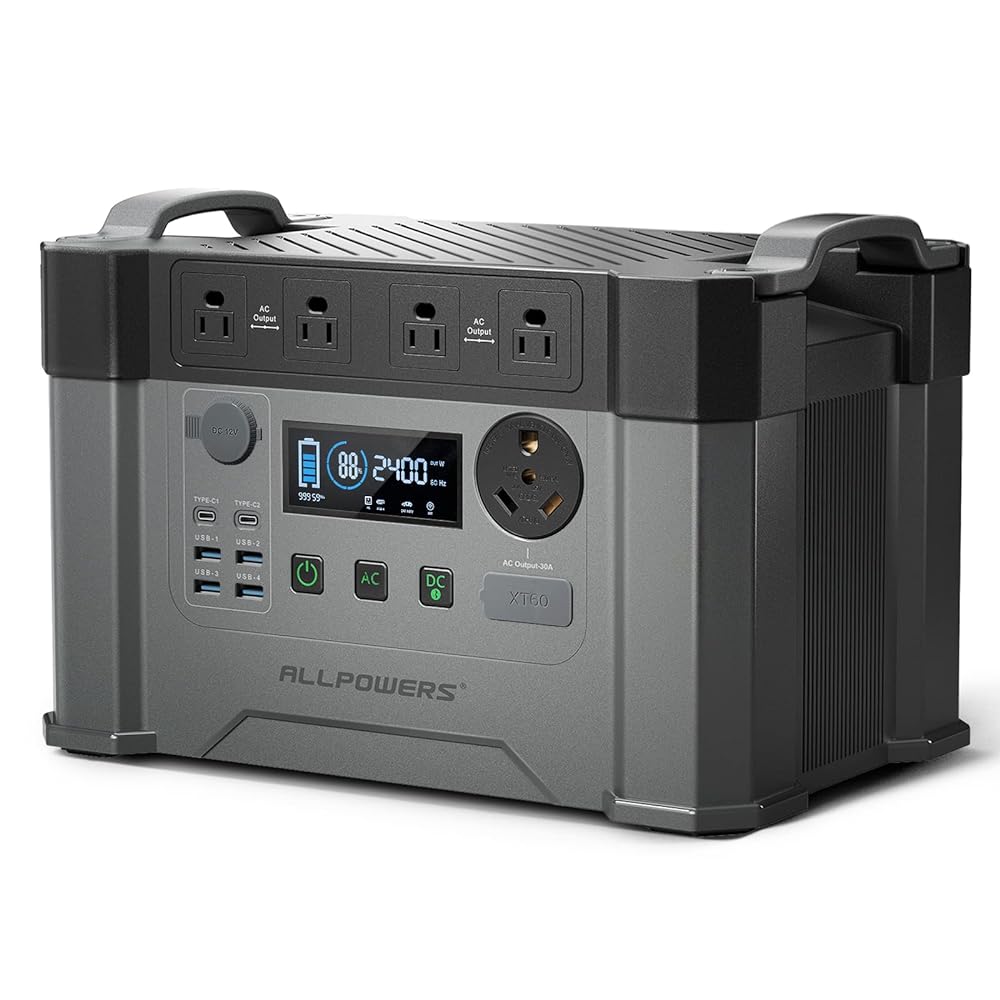




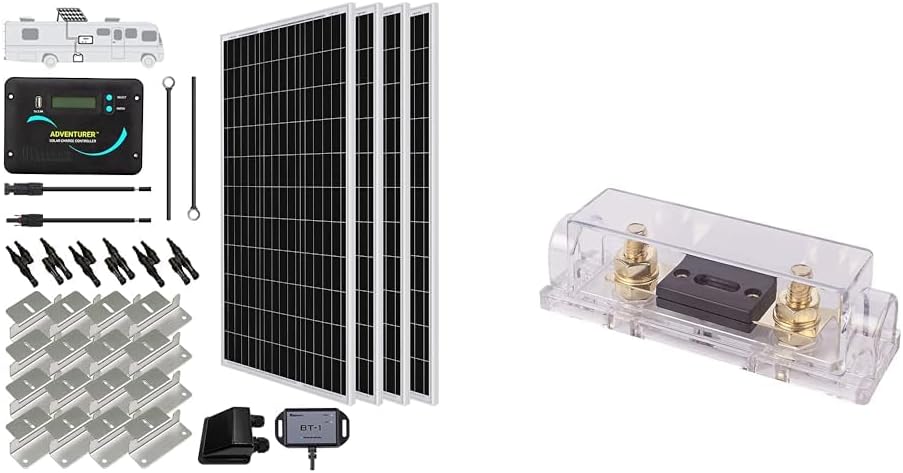

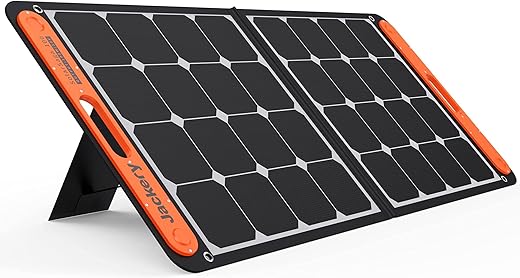
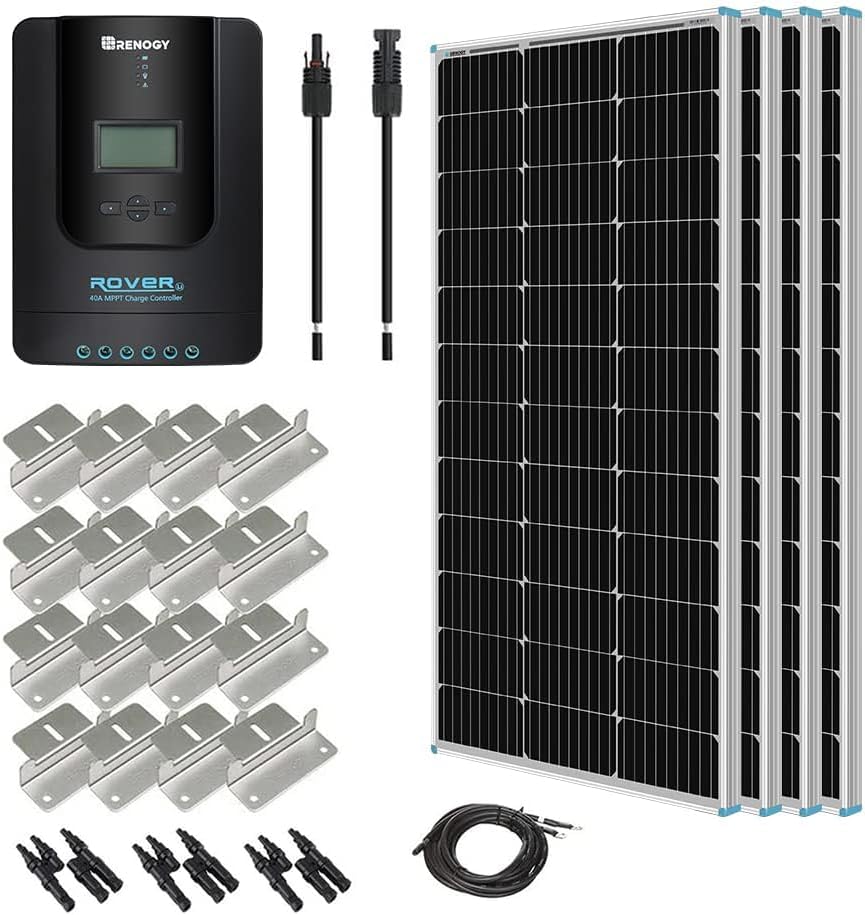

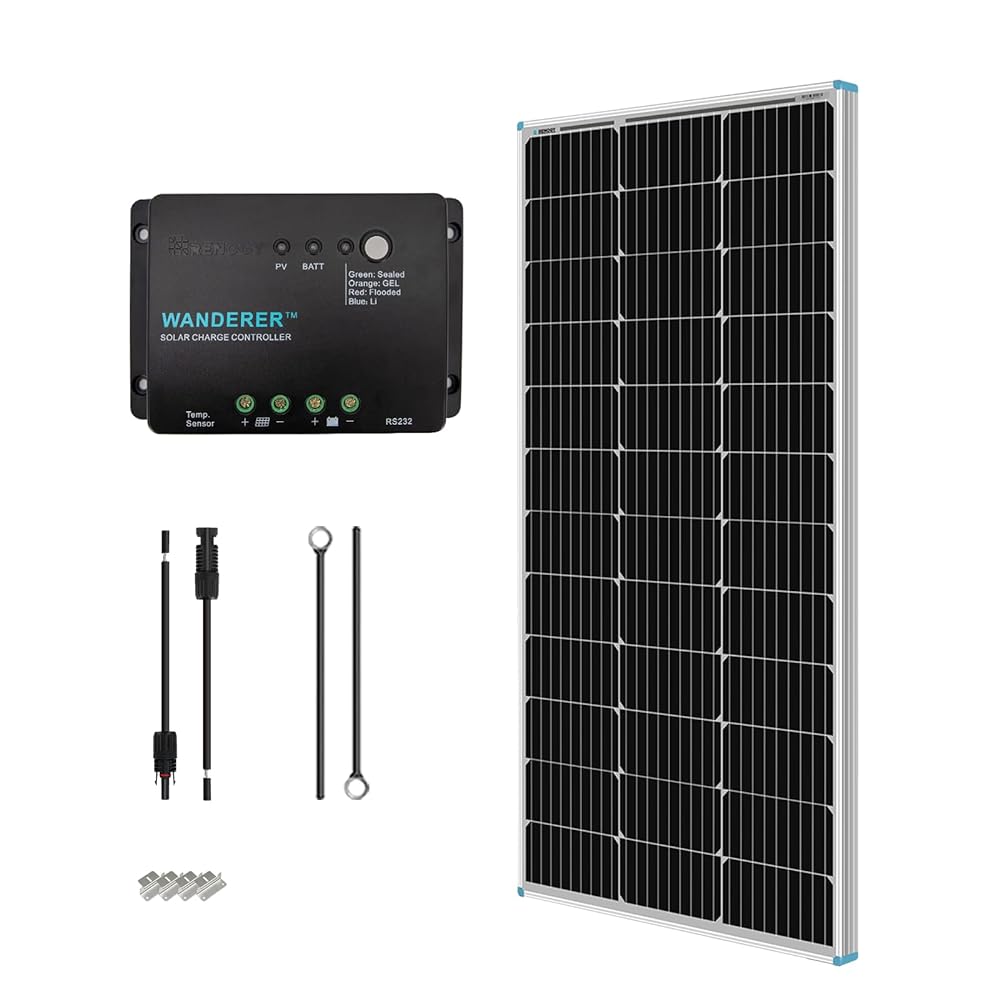


I have bookmarked this article for future reference. It’s a valuable resource for anyone looking to calculate power requirements for their RV’s solar generator.
The examples and calculations in this article make it easier to grasp the concept of power requirements for an RV’s solar generator. Well done!
This article provides a comprehensive guide on calculating power requirements for an RV’s 30 Amp solar generator. Very helpful!
I am new to RVing and solar generators. This article gave me a good understanding of how to calculate power requirements. Great job!
I have been struggling with determining the power needs for my RV’s solar generator. This article breaks it down so clearly. Thank you!
I found the step-by-step process outlined in this article very easy to follow. Now I can accurately determine the power requirements for my RV’s solar generator.
I appreciate the tips and recommendations provided in this article. It will definitely help me optimize the power usage of my RV’s solar generator.